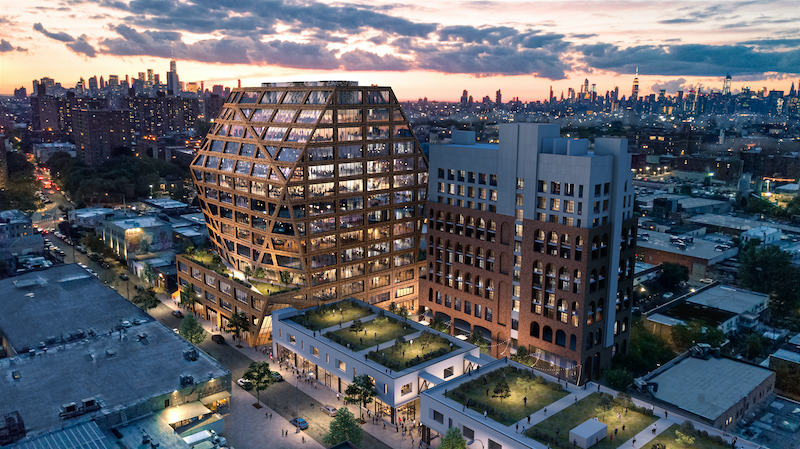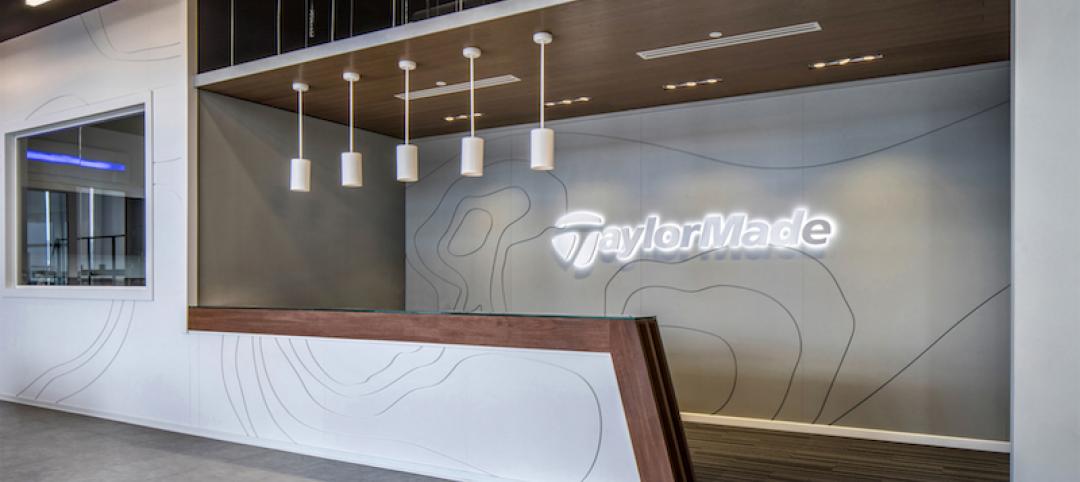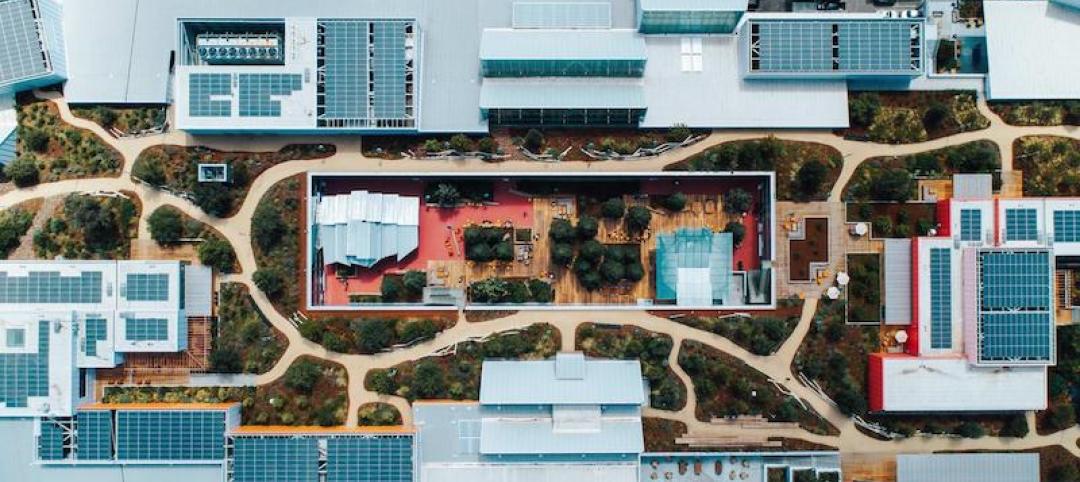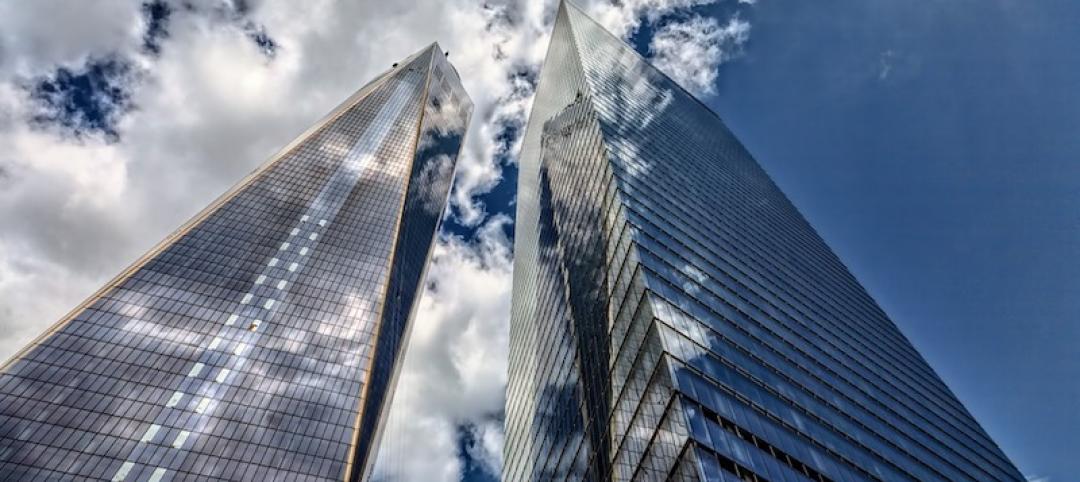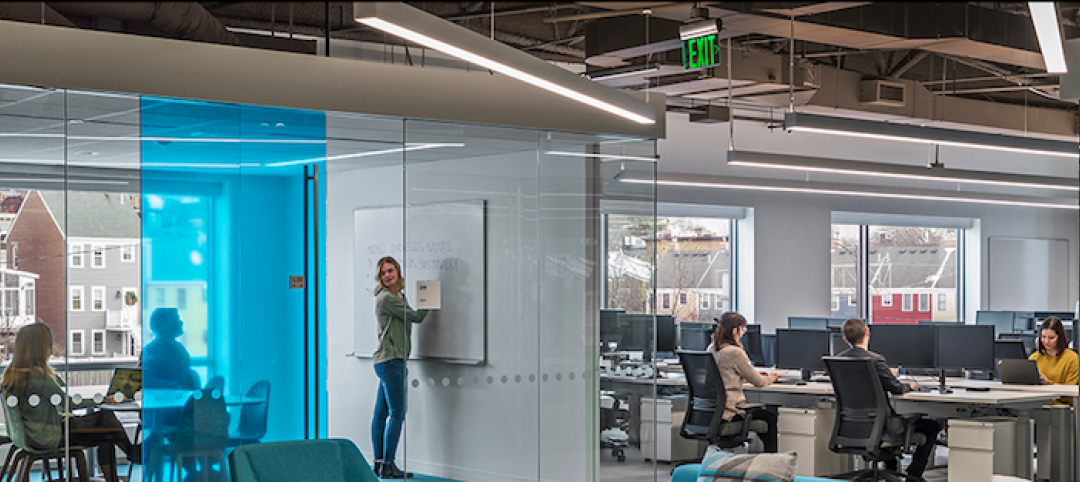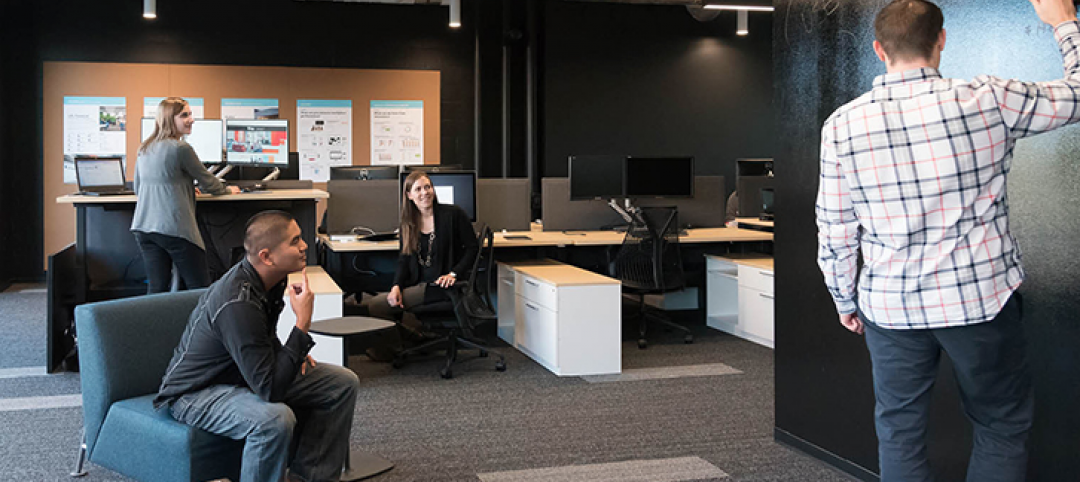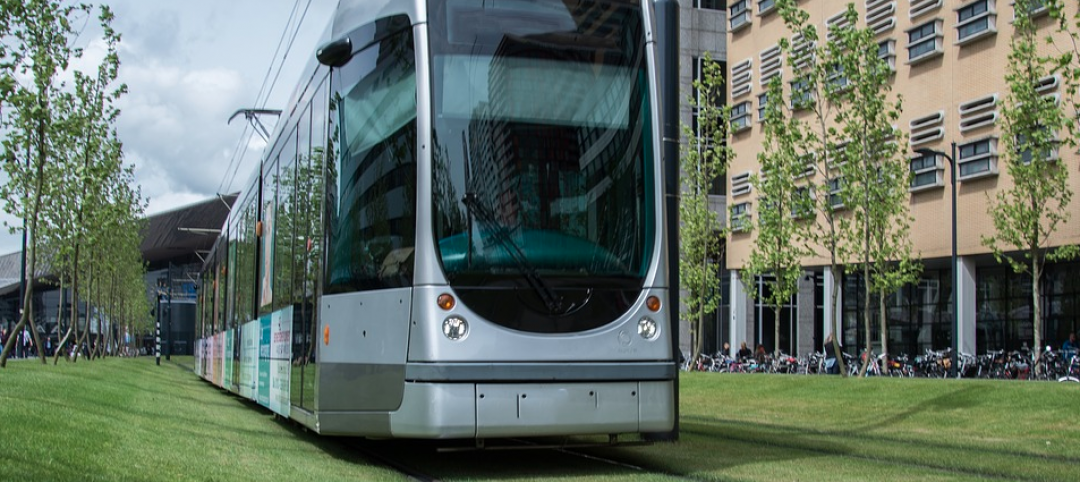HWKN has unveiled Bushwick Generator, a new office campus meant to embody the Brooklyn neighborhood’s energy and tradition of disruptive entrepreneurship.
As part of the campus’ design, the light-industrial buildings that existed on site were reimagined as part of the new building’s foundation. Atop this base, HWKN designed a brick-clad, sculptural, gem-like volume that introduces a vertical focal point in the neighborhood and comprises 400,000-sf of workspace.
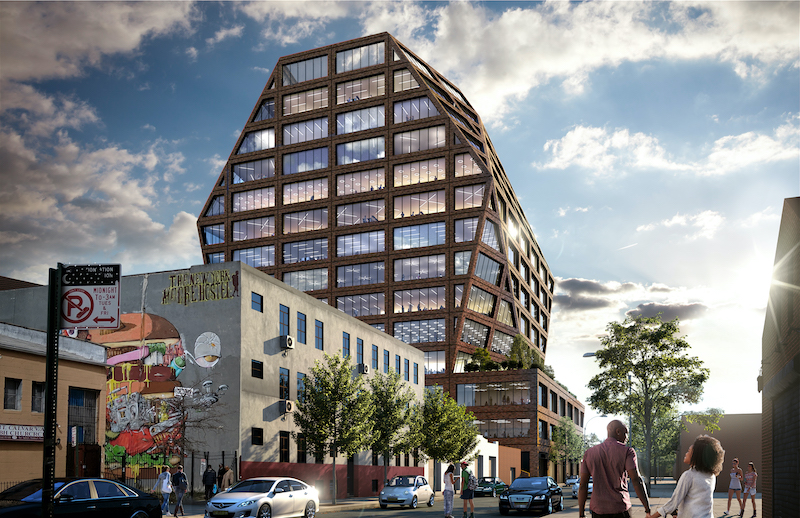
In order to create working environments that reflect the lively, unique exterior form, the design invites the surrounding neighborhood’s energy inside with areas for public programming. These spaces can be used for exhibitions, performances, and social events, bringing together office tenants with community members in a bustling center that offers something to tenants and Bushwick locals alike.
To further open the building to the street, a corner of the existing light-industrial structures is sliced off at the base, creating a triangular entrance that continues the faceted geometry to the ground plane and carves out space for a sidewalk plaza. Above this, a landscaped outdoor terrace activates the area where the rectangular base meets the vertical gem. This unique amenity can serve as a breakout space, an informal meeting area, or a venue for public events.
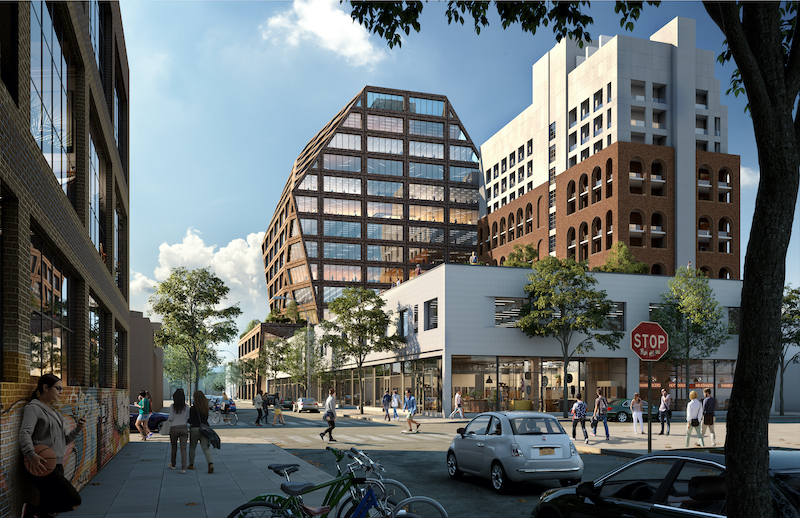
The octagonal floor-plates can be flexibly subdivided, allowing the building to host businesses ranging from start-ups and growth-phase companies to established industry leaders. The building’s form creates distinctive interior work environments with 270-degrees of exposure, flooding each floor with natural daylight and panoramic views of Brooklyn and Manhattan.
The campus is slated for completion in 2023. The build team includes HWKN (design architect), Land Collective (landscape design), Salamon Engineering Group (MEP), Philip Habib & Associates (civil engineer), and Titan Engineers (structural engineer).
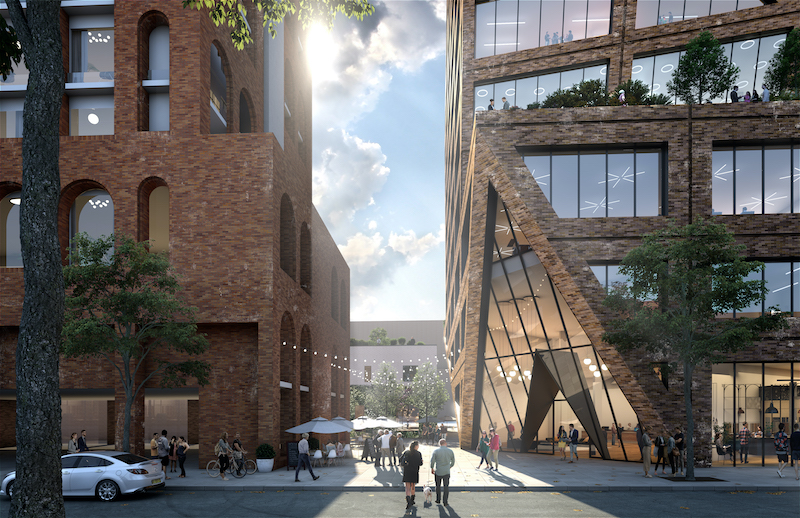
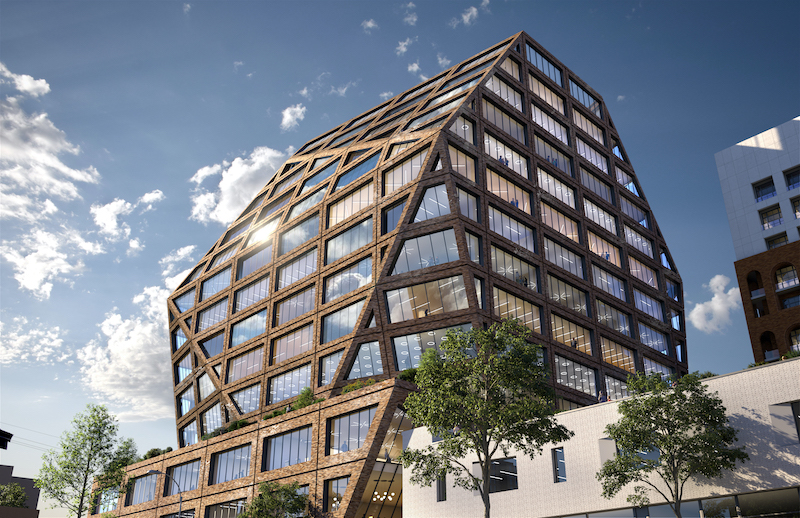
Related Stories
Office Buildings | Sep 17, 2018
TaylorMade Canada HQ includes golf laboratory and product showroom
ZZen Design Build was the general contractor for the project.
Office Buildings | Sep 5, 2018
Facebook’s new Frank Gehry-designed Menlo Park HQ extension includes a massive green roof
Level 10 Construction was the general contractor for the project.
Office Buildings | Aug 27, 2018
The open office isn't dead
The degree of open or enclosed doesn't matter in high-performing work environments. If the space is designed to function well, all individual space types are rated as equally effective.
Office Buildings | Aug 17, 2018
An elliptical office building goes with the flow in Boston
Exterior design cuts waste, saves energy, says Building Team members.
Office Buildings | Aug 14, 2018
Flexibility tops office workers' wish lists, followed by healthcare
A survey of 1,000 office workers in the US and UK found that men value health insurance above any other work perk, whereas women would prefer more flexibility in their office job.
Office Buildings | Aug 13, 2018
There's more to the open office than headlines suggest
A study found that contrary to popular belief, the open office did not encourage—but rather, inhibited—face-to-face communication.
Office Buildings | Jul 31, 2018
Office trends 2018: Campus consolidations bring people together
Companies create community-rich work environments where employees can thrive.
Office Buildings | Jul 25, 2018
New study on occupant comfort advances Saint Gobain’s design approach for renovation and new construction
The building products giant gauges its employees’ perceptions of old and new headquarters environments.
Office Buildings | Jul 18, 2018
A day in the life of an ‘agile worker’
When our Gensler La Crosse office relocated last year, we leveraged the opportunity to support an agile workplace strategy (aka, no assigned seating). Here’s what I’ve experienced firsthand.
Office Buildings | Jul 17, 2018
Transwestern report: Office buildings near transit earn 65% higher lease rates
Analysis of 15 major metros shows the average rent in central business districts was $43.48/sf for transit-accessible buildings versus $26.01/sf for car-dependent buildings.


